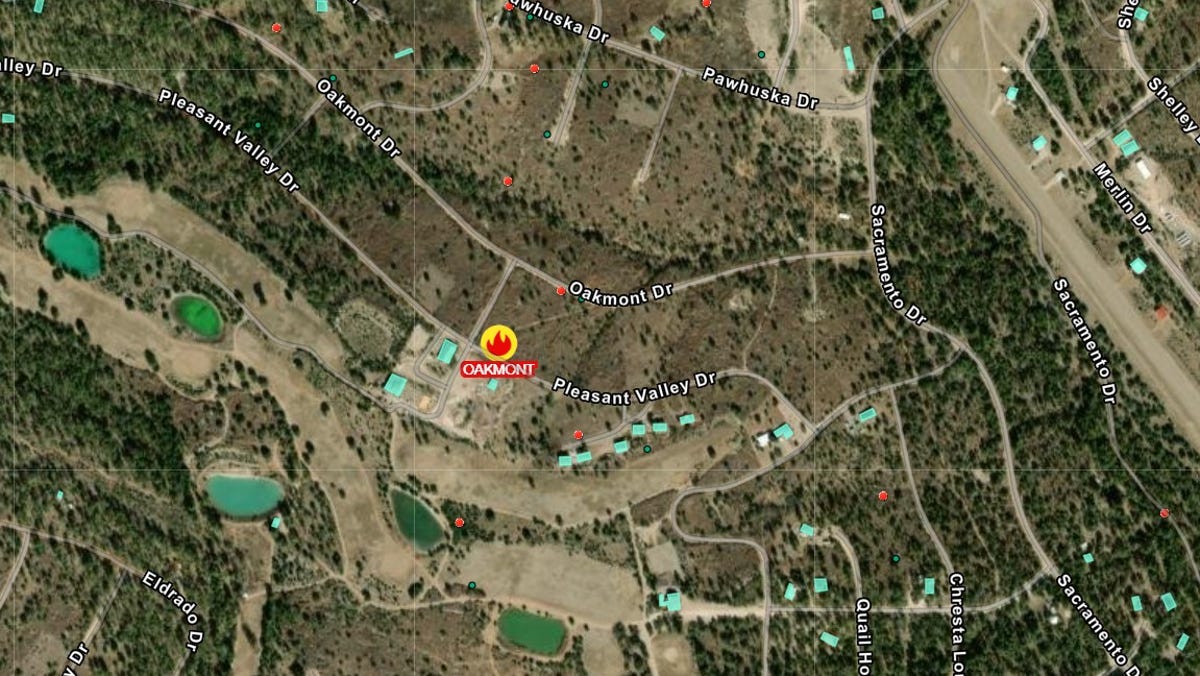World
Haley’s campaign a giant step for GOP women, but bigger still for Trump

With polls showing Nikki Haley trailing Donald Trump by a wide margin heading into this weekend’s South Carolina Republican primary, many political analysts characterise the vote as Haley’s last stand in her quixotic bid to win the party’s 2024 presidential nomination.
Regardless of the result, however, scholars have said that Haley’s campaign is a historic one. By outdistancing a field dominated by men to effectively challenge the immensely popular Trump, she has moved women one step closer to political parity in electoral politics.
Polls indicate that Trump is leading Haley by as many as 36 percentage points heading into Saturday’s South Carolina primary, even though Haley is a native and former governor of the Palmetto State. And while winning the South Carolina primary would open the door for Trump to capture the party’s nomination outright when 15 states hold their primaries simultaneously next month, Haley’s campaign has, at least in theory, charted a path to remain in the race until Super Tuesday, which could give the former United Nations ambassador an advantage in the 2028 presidential ballot.
Haley, for her part, has pledged to remain in the race despite the odds. Speaking at her alma mater, Clemson University, on Tuesday, she said, “Some of you — perhaps a few of you in the media — came here today to see if I’m dropping out of the race,” she said. “Well, I’m not. Far from it.”
Haley’s emergence as the last woman standing in what was a crowded race stands in stark contrast to candidates like former New Jersey Governor Chris Christie and ex-Arkansas Governor Asa Hutchinson, who styled themselves as “anti-Trump” candidates. Conversely, Florida Governor Ron DeSantis hewed close to Trump in both style and substance before dropping out in January, after failing to distinguish himself from the frontrunner and presumptive nominee.
Haley, on the other hand, has staked out a middle ground, portraying herself as a would-be “accountant” in the White House, and consequently a calming alternative to Trump’s four years of “chaos”.
Initially circumspect in her criticism, Haley has turned up the heat as the GOP field has narrowed, attacking Trump’s efforts to insert loyalists in the Republican National Convention, highlighting his rising stack of legal troubles, and taking more direct aim at Trump’s “insecurity” and temper tantrums.
Her policy proposals, however, are not substantively different from her former boss, and as recently as this month, Haley told reporters in South Carolina that her campaign is not an “anti-Trump movement”, according to the Washington Post.
Part of Haley’s strategy is to walk a tightrope when it comes to addressing her gender and Indian ancestry in a modern Republican party that is slow to change, Kelly Dittmar, director of research at the Center for American Women and Politics at Rutgers University, told Al Jazeera.
For instance, Dittmar said that Haley has, in many ways, leaned into her role as the rare woman in a Republican presidential race, but she has not necessarily portrayed gender as a “point of merit”, underscoring the conservative “idea that somehow hearing about gender and racial identity is anti-meritocratic … and [Republicans] don’t play into identity politics.”
“If you go back to Hillary Clinton in 2016, she used to say, ‘I’m not asking you to vote for me because I’m a woman, I’m asking you to vote for me on the merits. But one of those merits is I’m a woman,’” Dittmar said.
In contrast, Haley has used gendered imagery to boost “masculine credentials” and an image of male toughness that still resonates in the party, repeatedly referring to her high-heeled shoes as “ammunition”. In the advertisement launching her campaign, she proclaimed, “When you kick back, it hurts them more if you’re wearing heels.”
Moreover, on the issue of race, Haley has tacked to the right, consistent with Trump’s own views, sparking controversy by failing to cite slavery as a reason for the US Civil War. And she has repeated a regular Republican line, most recently in an interview in late January. “I don’t think America’s racist,” she said. “I think we have racism in America.”
A historical benchmark
In turn, Trump’s attacks on Haley suggest that there remains a tolerance – if not appetite – for racism and sexism among his supporters, Dittmar said. In January, Trump referred to Haley as “birdbrained” and “not presidential timber”.
Trump has amplified the conspiracy that Haley, who is of Indian descent, was not born in the US, redolent of a tactic known as “birtherism” which he championed during Barack Obama’s 2008 presidential campaign, falsely alleging that the nation’s first African American president was born in Kenya, and was therefore ineligible to run for president.
The former president has also referred to Haley as “Nimbra”, an apparent debasement of her first name, Nimarata (Nikki, the name she uses, is her middle name).
Many have said that Trump’s remarks are hardly surprising for a candidate who had previously bragged about sexually assaulting women, derided his 2016 Democratic opponent Hillary Clinton as a “nasty woman” who did not look presidential and suggested in 2015 that a female debate moderator had “blood coming out of her whatever”.
While such attacks have come to be seen as part and parcel of a Trump campaign, Dittmar noted that studies have regularly indicated high measures of “hostile sexism” and “racial resentment” among his supporters.
“It is not surprising that Trump would use sexist or racist language or strategies, because that’s actually been beneficial for him to mobilise a lot of these voters,” Dittmar told Al Jazeera. “[Nikki Haley] brings that out, but perhaps to his advantage, at least among his base”.
Haley has fought back, launching the National Women for Nikki Coalition, a 50-state effort that many see as a last-ditch effort to energise the voting bloc.
And while it may ultimately be a matter of too little, too late, Haley’s staying power in the race represents a historical benchmark for a political party that has traditionally been dominated by white men. And both voters, donors and the media appear to hold her in much higher regard than Sarah Palin, the former Alaska governor and self-proclaimed “hockey mom” who was often ridiculed by stand-up comedians and late-night talk show hosts.
“It is notable to recognise and to give Haley credit for pushing the envelope on the Republican side for at least more seriously taking a woman candidate as a potential nominee,” Dittmar said.
“In the modern context, she will have gotten farther than any other Republican woman, and I do think that that’s something worth pointing out, regardless of what happens.”
Electoral vulnerabilities
While a resounding defeat in South Carolina seems likely, Haley’s race has, if nothing else, taken the temperature of the modern Republican Party and the existential crisis represented by Trump’s enduring hold, according to politics watchers.
Perhaps most illuminating during Haley’s run has been just how difficult it has been for Haley – or any of the now departed Republican candidates – to find any purchase in attacks on Trump, a heterodox politician who has continued to polarise members of the party.
In 2020, a movement against Trump largely coalesced under the “Never Trump” banner. While that effort has been less vocal this election cycle, there is a “minority, but a significant kind of disaffected Republican voter still looking for an alternative to Trump,” according to Aaron Kall, an elections expert at the University of Michigan.
“That shows that if Trump is the nominee, which is still likely, that he does have some general election vulnerabilities,” he said.
He pointed to several prominent donors who have continued to provide the funds Haley needs to stay in the race, many hailing from the more traditional conservative old guard of the Republican Party. Haley’s campaign said she raised $16.5m in January – nearly a third of the $42m in campaign cash raised by Trump last month – which Haley described as her largest monthly haul since entering the race.
Before the South Carolina primary, Haley also attended a Texas fundraiser co-hosted by real estate magnate Harlan Crow and oil tycoon Ray Lee Hunt, among others, according to Fortune magazine.
Enduring hold
Some have viewed Haley’s persistence as an effort to position herself as the natural successor to Trump in the event that he is unable to be the party’s nominee.
Trump is the first candidate in US history to face one criminal indictment – let alone four – during his campaign, creating an unprecedented situation that could potentially find the former president behind bars come November, raising the question of electability.
“We have empirical evidence to show that MAGA [Trump’s “Make America Great Again” movement] has been dwindling in size, not growing in influence in the party,” Rina Shah, a political strategist, told Al Jazeera.
She pointed to the 2022 midterm elections in which Trump-endorsed candidates underperformed, resulting in a predicted red wave turning into a ripple.
Shah said she believes Haley’s losses in Iowa and New Hampshire, and recent polls, have not reflected the extent to which Trump has turned off some segments of the Republican Party, particularly suburban women.
“The general election of 2024 is going to be determined by independently minded voters in swing states,” Shah told Al Al Jazeera. “That is who I believe Trump cannot bring in in this election because he lost them in 2020 in a big way.”
Still, the former president has demonstrated an ability to mobilise his enthusiastic base, something that his Democratic opponent, President Joe Biden, has not been able to do so far this election season. The irony, Shah said, is that while Haley’s campaign has raised the bar for women running for high political office, it has paradoxically shown that Trump is a political juggernaut.
Even when Trump is “hardly campaigning, when he’s under all these legal challenges”, Shah pointed out that “his base’s loyalty to him is just so much deeper than we have seen with other candidates”.
In sum, Haley’s run has shown the Republican Party “is still a cult of personality” – for Trump.

World
'Show solidarity': Pro-Palestinian protesters camp across Australian universities

World
China increases aggressive moves against Taiwan as island prepares to inaugurate new president
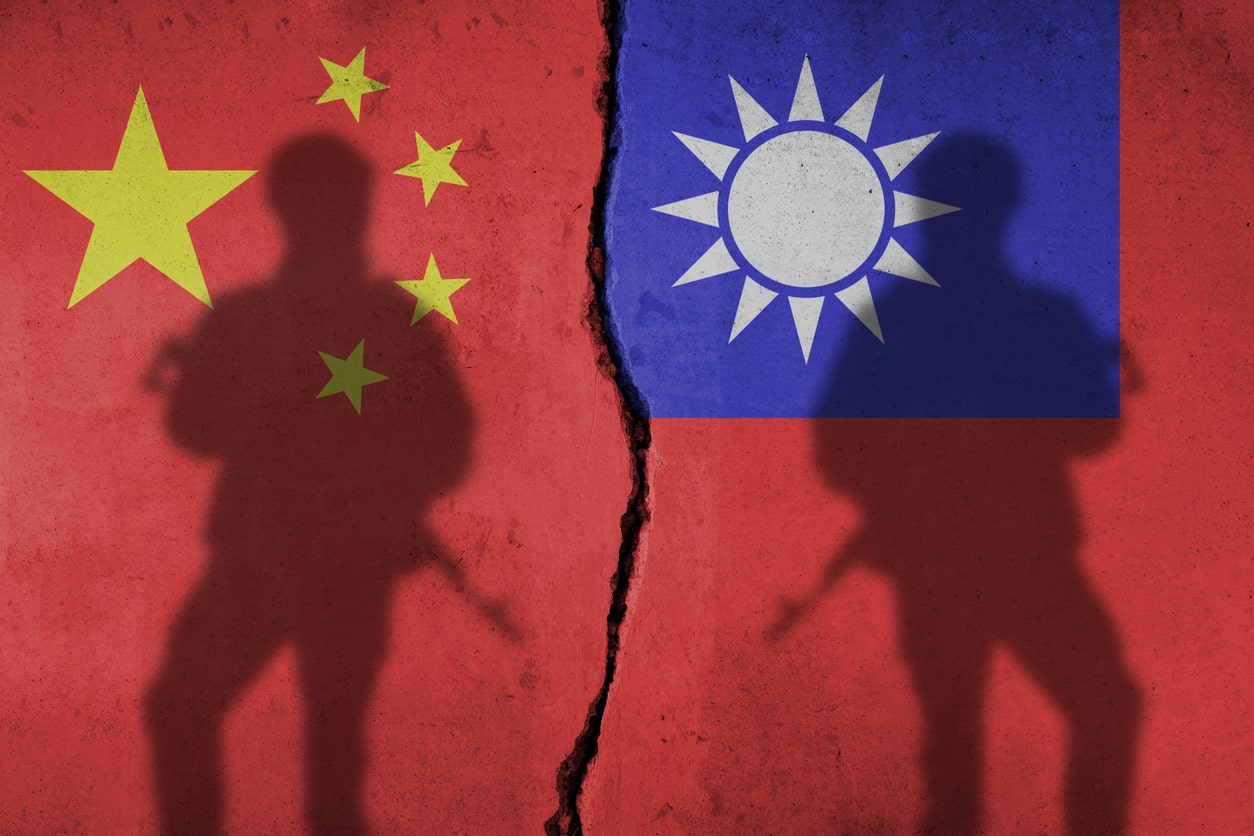
KAOHSIUNG — Virtually every day, the People’s Republic of China does something unprecedented — its coast guard briefly boarding a Taiwanese tourist boat, flying military aircraft ever closer to Taiwan or increasing harassment of Taiwanese fishing boats in the South China Sea.
“This is a problem,” says Dean Karalekas, author of “Civil-Military Relations in Taiwan: Identity and Transformation.” “Because these unprecedented actions are creating a new normal. Beijing hopes that we (the West) will sit by and watch as they take over Taiwan, just as we did when they used these same salami-slicing tactics to take over the South China Sea.”
The world began noticing more of China’s hostile actions following the visit to Taiwan by former U.S. House Speaker Nancy Pelosi in 2023, but the strategy has been in place for some time.
“China’s plan to ‘normalize’ military encroachments was planned long before Pelosi’s visit,” Taipei Times columnist and political commentator C. Donovan Smith told Fox News Digital. “The military exercises were far too complex and logistically complicated to have been planned in the short span of time between the announcement of her trip and her arrival in Taiwan.”
TAIWAN ELECTION: RULING PARTY CANDIDATE WINS TIGHTLY CONTESTED PRESIDENTIAL RACE, UPSETTING CHINA’S AMBITIONS
President-elect William Lai votes in southern Taiwan’s Tainan city Jan. 13, 2024. (AP Photo/Ng Han Guan)
Surrounding Taiwan in a mock “quarantine” and performing missile “tests” in 2023 was also intended to push Taiwanese voters toward politicians and parties more friendly to China. But, as has been the case in the last three elections here, Beijing’s ploys were ineffectual. Taiwan in January elected the incumbent vice president, William Lai, to take over from two-term President Tsai Ing-wen. Both Tsai and Lai are members of the Democratic Progressive Party (DPP).
The incoming Taiwan president has repeatedly pledged to make no changes to policies in place over the last eight years. Beijing, however, sees William Lai (Lai Ching-te) as a “splittist” and a supporter of Taiwan independence. Lai previously did voice support for independence but has tried to walk that back. China, however, does not forgive nor forget. Many political experts believe Beijing will ratchet up pressure as Lai enters office later this month.
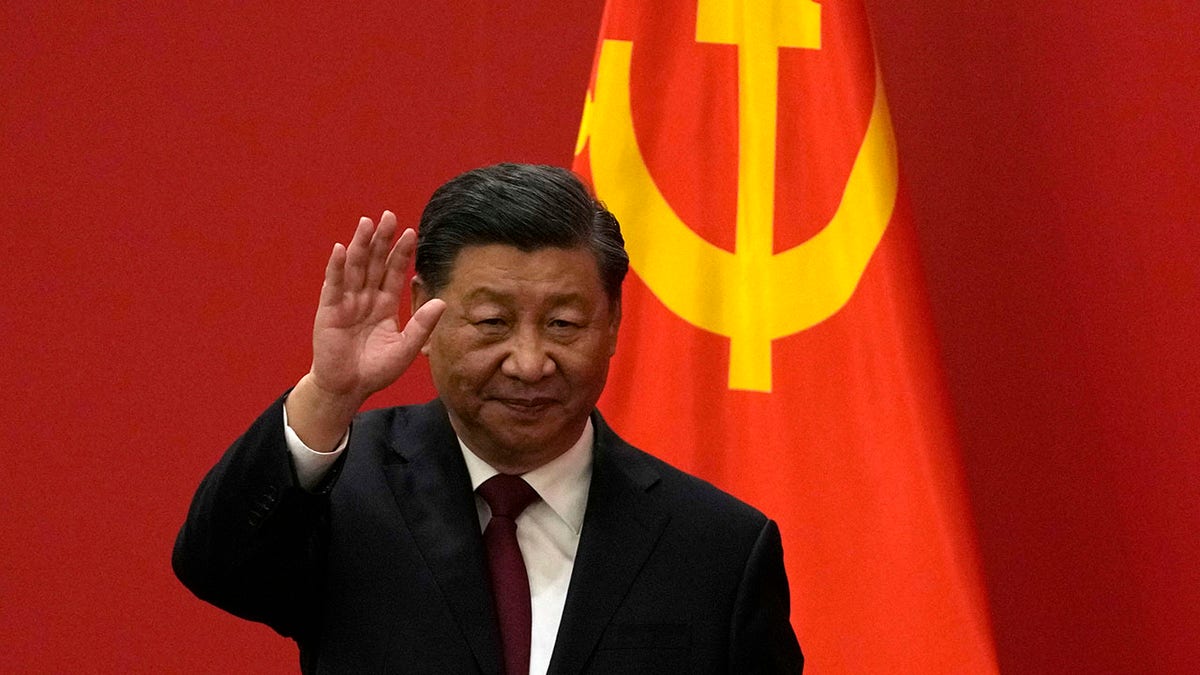
Chinese President Xi Jinping waves at an event to introduce new members of the Politburo Standing Committee at the Great Hall of the People in Beijing Oct. 23, 2022. (AP Photo/Andy Wong, File)
A recent example of China’s attempts to establish this “new normal” is changes to airspace rules. China is close to finishing a massive new airport serving Xiamen in Fujian Province. Just 6.2 miles away, however, sits the island of Kinmen, which has remained a part of the Republic of China (ROC), better known as Taiwan, since 1949.
Kinmen Airport is strategically important for Taiwan. In 2015, the two sides worked out a deal to change a flight path that was a bit too close for Taiwan’s comfort. But in February, Beijing unilaterally backed out of the deal, announcing that, from May 16, new air routes would begin operating to “further optimize airspace” around the area.
FOR CHINA’S MILITARY PLANNERS, TAIWAN IS NOT AN EASY ISLAND TO INVADE
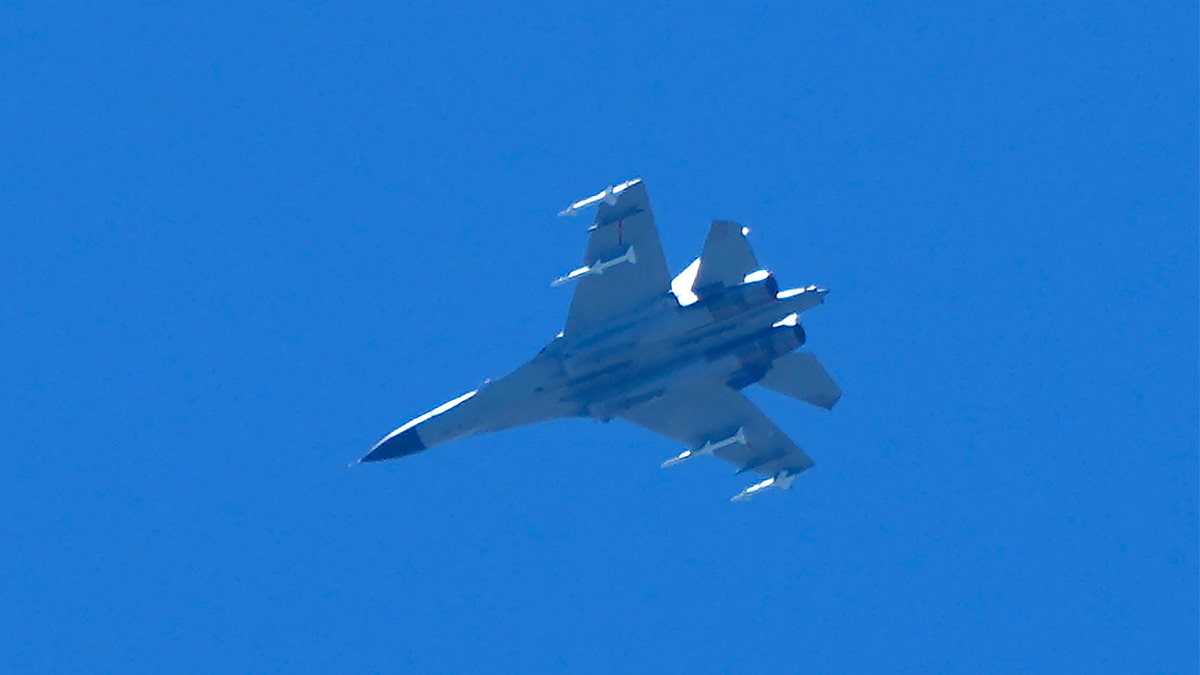
A fighter jet flies in the direction of Taiwan as seen from the 68-nautical-mile scenic spot, the closest point in mainland China to the island of Taiwan, in Pingtan in southeastern China’s Fujian Province Aug. 5, 2022. (AP Photo/Ng Han Guan)
Few China watchers think China picked the day arbitrarily, says Karalekas.
“Beijing has a pattern of testing new leaders of enemy states. They tested Bush with the EP-3E spy plane incident. They tested (then-Japanese prime minister) Naoto Kan with the Senkaku boat collision. We can expect them to test Lai by creating some sort of mini-crisis around the time he takes office on May 20.”
“I think China is really ramping up threats,” Eric Hsu told Fox News Digital. Hsu lives in southern Taiwan’s biggest city, Kaohsiung, has worked on historical restoration projects and hosts a podcast on Taiwan history.
He says he isn’t only worried about military hardware, but also what he termed, “brainwashing videos and moves by KOLs,” (Key Opinion Leaders, a term used to describe internet influencers).
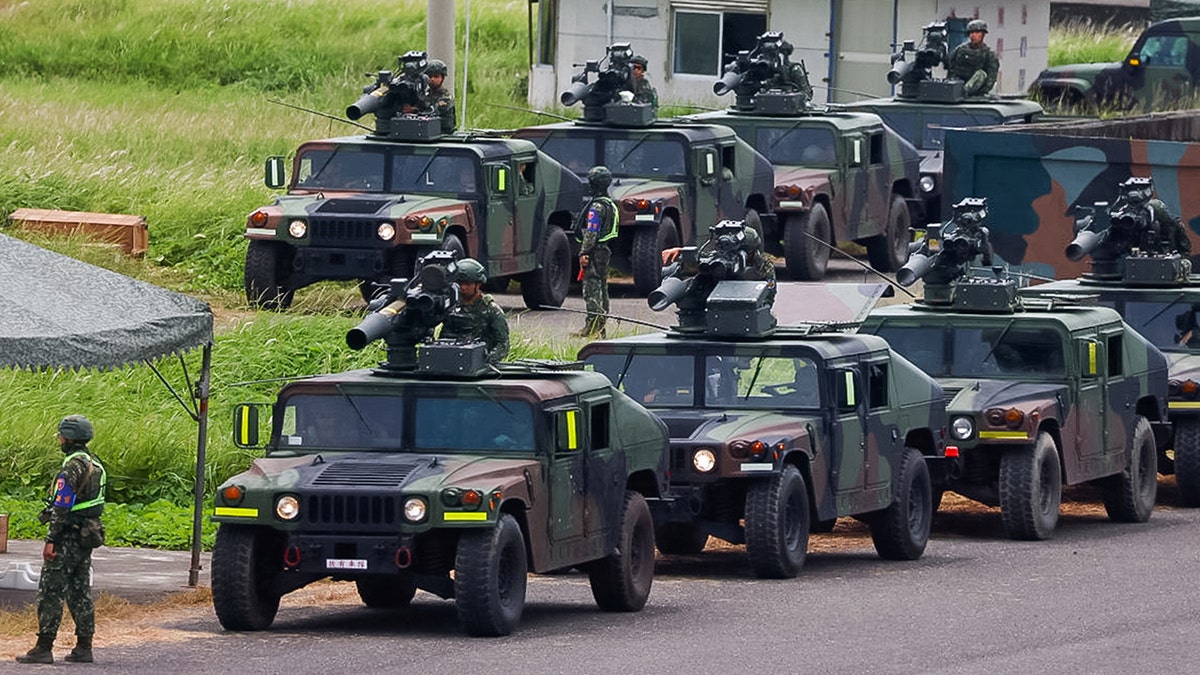
Military vehicles equipped with a U.S.-made TOW 2A missile during a live fire drill in Pingtung, Taiwan, July 3, 2023. (REUTERS/Ann Wang)
Hsu places much of the blame at the feet of local opposition parties seen by many as more friendly to Beijing. Describing the current domestic political situation, he said Taiwan faces “not just an enemy at the gate, but also enemies within.” South Taiwan is a DPP stronghold, but not everyone in the south agrees that the opposition parties are the problem.
Another resident of Kaohsiung, a self-employed businessperson and mother, Ms. Lin, thinks the DPP hasn’t been sincere in reaching out to China.
“They’ve had eight years, and now they will get at least another four,” Lin told Fox News Digital. “What Taiwan needs are brave leaders, people willing to try new solutions, and I don’t see any such people in the current DPP leadership.”
TAIWAN PRESIDENT-ELECT CHOOSES NEW FOREIGN, DEFENSE MINISTERS AS CHINA ANNEXATION THREATS INTENSIFY
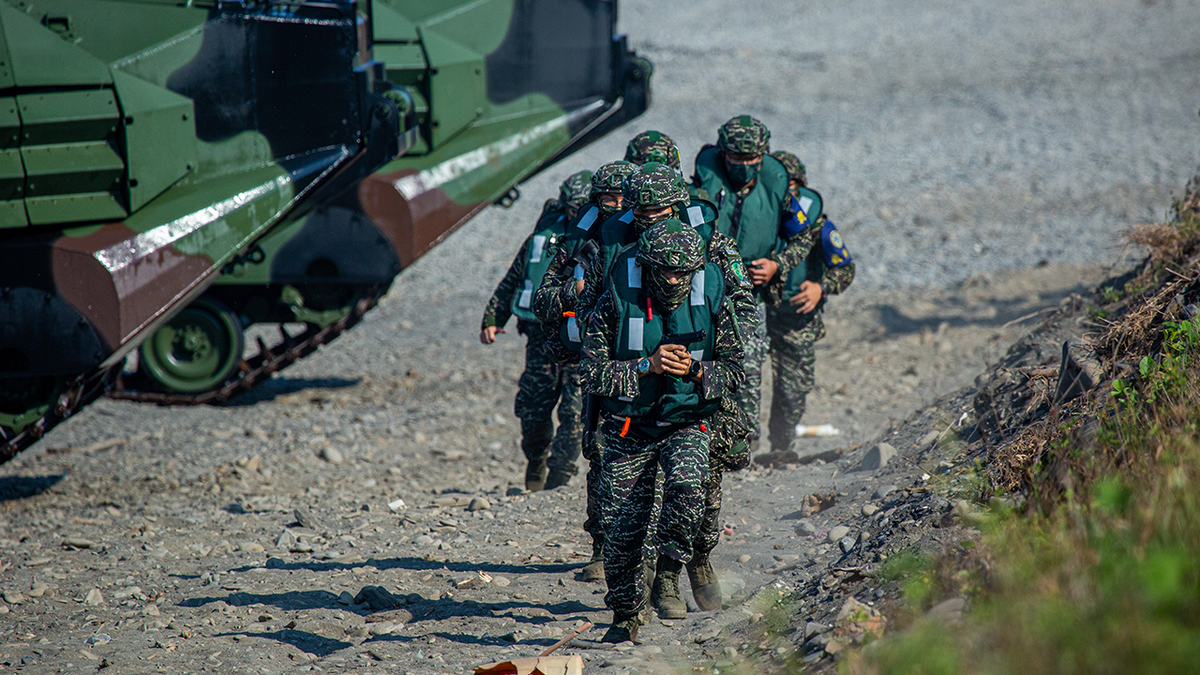
Soldiers disembark from AAV7 amphibious assault vehicles during the Han Kuang military exercise, which simulates the China’s People’s Liberation Army invading the island July 28, 2022 in Pingtung, Taiwan. (Annabelle Chih/Getty Images)
The main opposition party, the Kuomintang (KMT), denies it is “China-friendly” and instead says it is “peace-friendly.” Chinese dictator Xi Jinping has met with the KMT’s Ma Ying-jeou twice, first in Singapore in 2015 when Ma was in office as ROC (Taiwan) president. It was the first time since the end of WWII top leaders from China and Taiwan sat in the same room. Each side in 2015 chose to ignore official titles and address each other as “Mr. Xi” and “Mr. Ma.” On April 10,, “Mr. Xi” and former Taiwan president “Mr. Ma” met again, this time in Beijing.
Some experts see such meetings between the KMT and China favorably, arguing that any dialogue is good and – if nothing else – provides a way for China to save face as it continues its policy of mandatory “reunification,” which China now says may need to be achieved by force. Others in Taiwan and abroad see Ma’s meetings as straying far too close to an acceptance of the idea that Taiwan is a part of China.
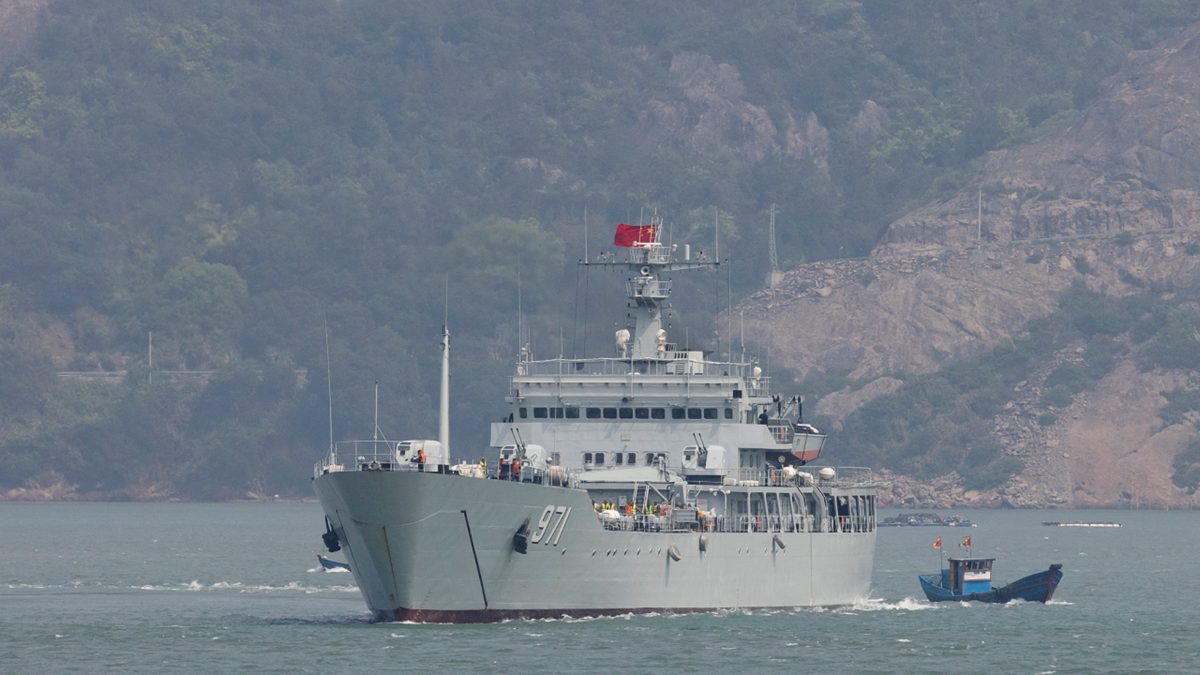
A Chinese warship sails during a military drill near the Taiwan-controlled Matsu Islands near the Chinese coast April 8. (Reuters/Thomas Peter)
As it stands, the ruling DPP says it’s content with the status quo, including keeping Taiwan’s official name, the Republic of China. The KMT is generally more in favor of talks with Beijing under a mutual respect “consensus” idea that boils down to agreeing that both sides are “China,” but each side is free to interpret what this “one China” means.
The problem with the KMT’s thinking, central Taiwan-based newspaper columnist and political commentator Michael Turton told Fox News Digital, is that “Xi’s goal is the complete subjugation of Taiwan, just like Hong Kong. Two of China’s ambassadors abroad have already indicated that Taiwanese opposed to Beijing rule will be shipped off to concentration camps. Given this goal, how can there ever be dialogue with mutual respect?”
World
Brussels, my love? Champage cracked open to celebrate the Big Bang

In this edition, we zoom in on dwindling press freedom in Europe and check how Europe is doing 20 years after the big bang enlargement.
This week, we are joined by Olena Abramovych, Brussels correspondent for Ukrainian TV, Ricardo Borges de Castro, analyst in European and global affairs and Polish journalist Dorota Bawolek.
Panelists reflect on the big bang enlargement of the European Union that took place 20 years ago when leaders of 10 new countries presented their flags to Pat Cox, then president of the European Parliament. Despite the bumps along the way, the panel agreed it was a success.
“Even though you can say that the story has not always be rosy, over the past 20 years it has been a great story”, Ricardo Borges de Castro said.
The panel also marked International Press Freedom Day by focusing on the dwindling press freedom in the EU.
“It is very worrying and at the same time, unfortunately, not very surprising”, said Dorota Bawolek, who suffered attacks both online and offline for her reporting, and experienced censorship.
“Democracy in Europe is not living its best days at the moment. And media and media freedom is one of the victims of it”, she said.
Watch “Brussels, my love?” in the player above.
-

 News1 week ago
News1 week agoLarry Webb’s deathbed confession solves 2000 cold case murder of Susan and Natasha Carter, 10, whose remains were found hours after he died
-

 News1 week ago
News1 week agoFirst cargo ship passes through new channel since Baltimore bridge collapse
-

 World1 week ago
World1 week agoHaiti Prime Minister Ariel Henry resigns, transitional council takes power
-

 World1 week ago
World1 week agoSpanish PM Pedro Sanchez suspends public duties to 'reflect'
-

 World1 week ago
World1 week agoUS secretly sent long-range ATACMS weapons to Ukraine
-

 Movie Reviews1 week ago
Movie Reviews1 week agoHumane (2024) – Movie Review
-

 News1 week ago
News1 week agoAmerican Airlines passenger alleges discrimination over use of first-class restroom
-

 Education1 week ago
Education1 week agoVideo: Johnson Condemns Pro-Palestinian Protests at Columbia University
